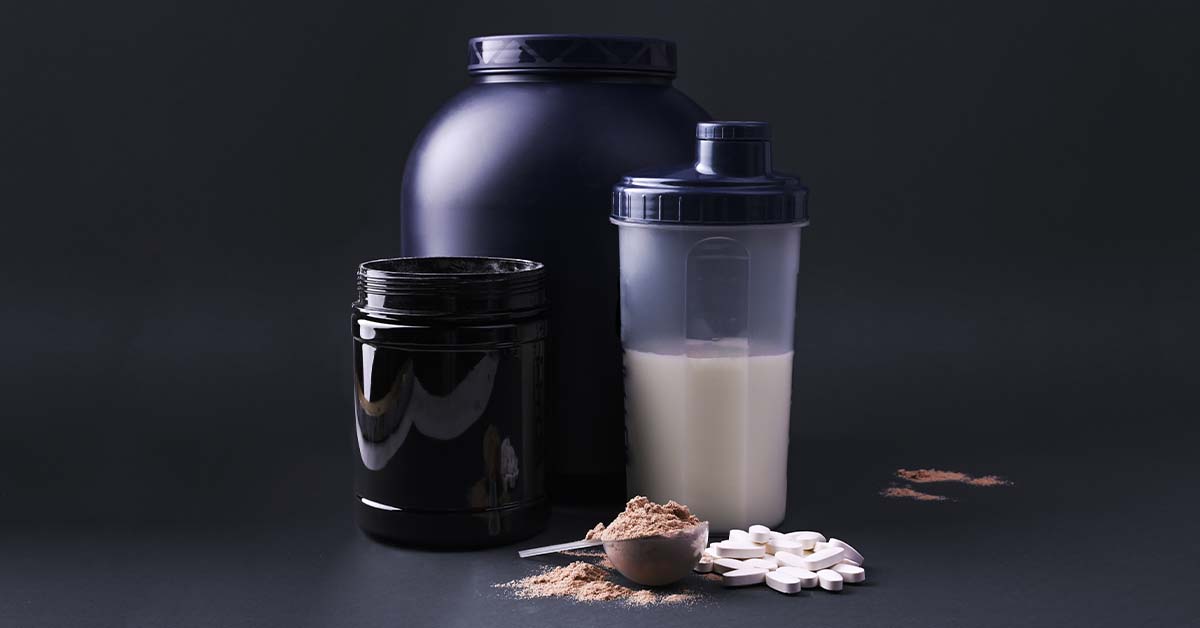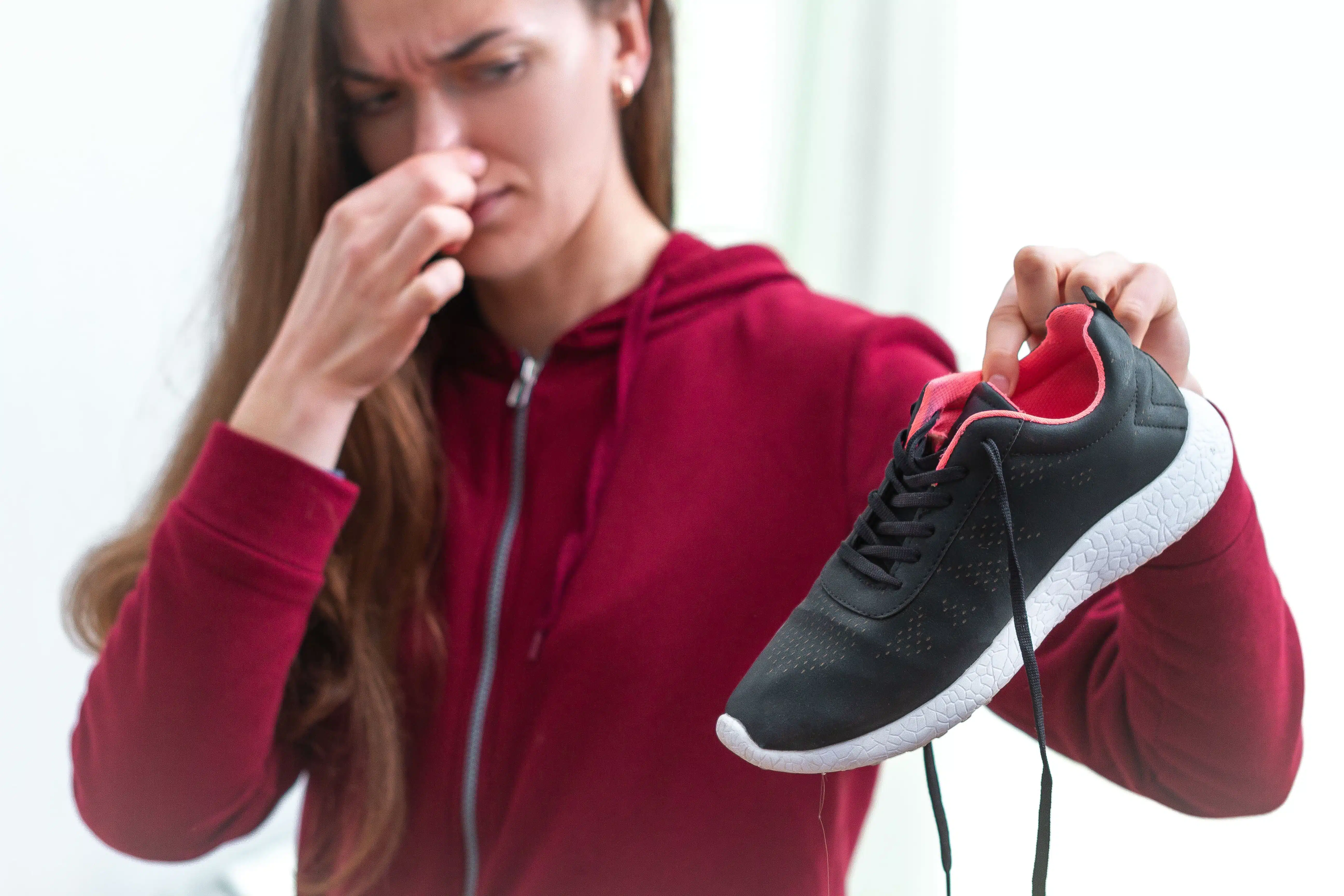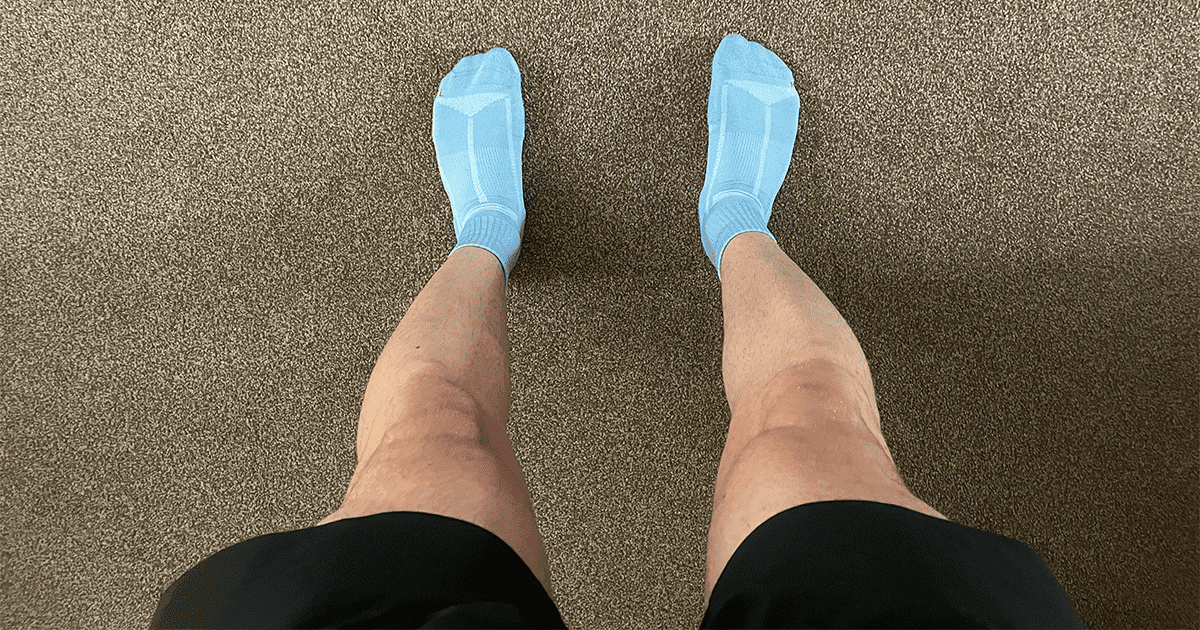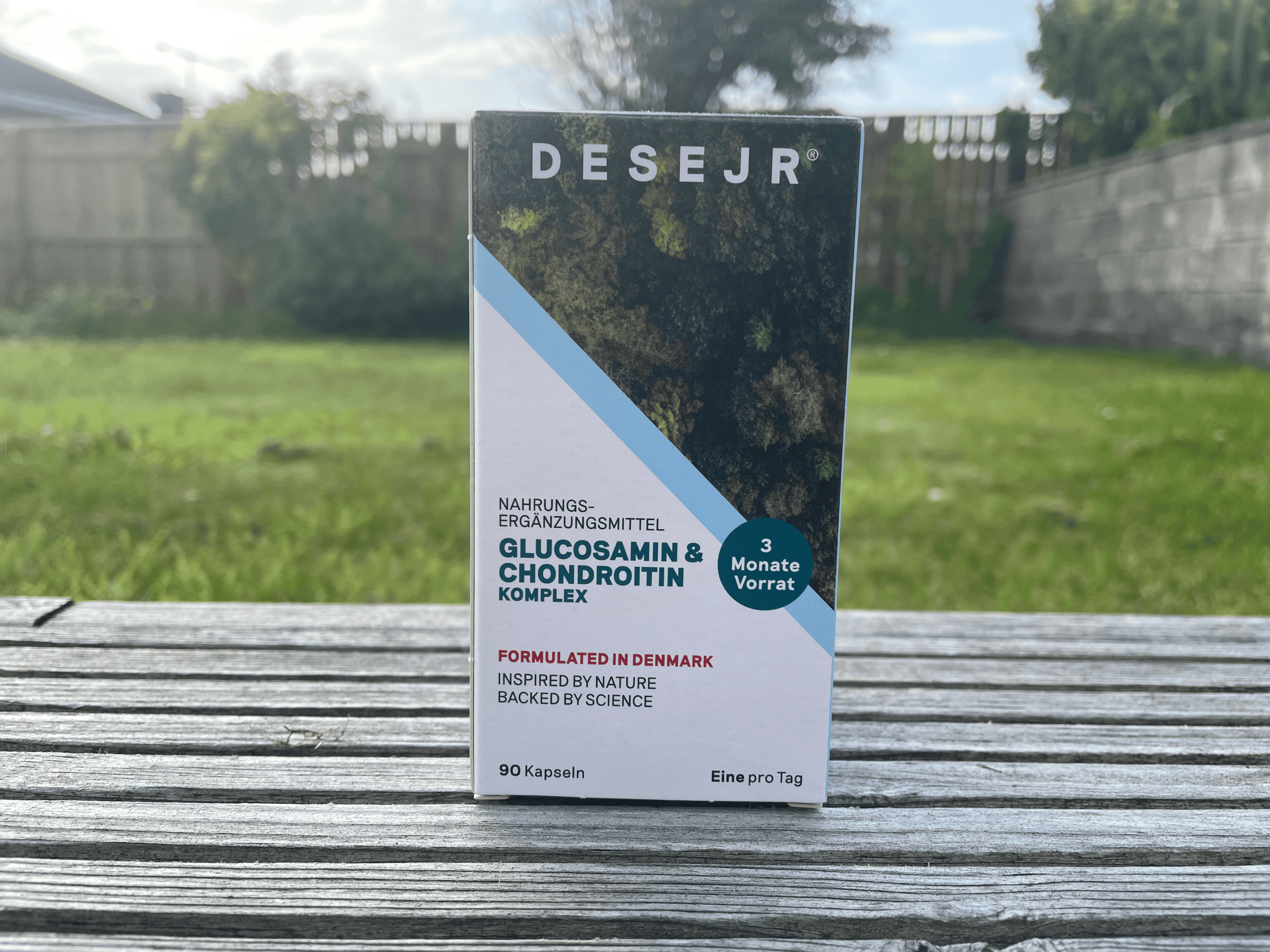The best supplements for runners – improve performance and recovery
Nine of the best supplements for runners to help you improve performance.

Whether you’re an amateur or elite marathon runner, you’re likely looking for ways to gain a competitive edge and to improve race-day performance.
Further, if you’ve already committed to such a sport, you’re likely just as committed to optimizing your overall health.
If this sounds like you, supplementation is probably something you’re seeking to become more educated on.
Supplementation is a fantastic tool that can be employed to improve nutrition, recovery, and performance, and even reduce the risk of injury; a primary concern of many runners and athletes alike.
With that being said, if you’re eager to learn more about running-specific supplementation and how you can benefit from it, continue reading!
Do runners need supplements?
Whether you’re a beginner or elite runner, supplementation is likely all but necessary to implement.
This is because of the demands that running inevitably places on the body.
While in an ideal world, one would gather 100% of their nutrition from whole foods, it can be difficult, even impossible in a practical world.
That’s where supplementation comes into play!
Because runners expend enormous amounts of calories and expel tremendous quantities of salts and fluids via perspiration (i.e. sweat), dietary requirements are that much more demanding.
Supplementation acts as a convenient mechanism to ensure that you’re reaching optimal nutritional demands.
So, while it’s impractical to suggest that runners NEED supplements, it can certainly be suggested that they’d inevitably benefit from it. That is, if they take the right supplements in the right amounts…
Despite this, some supplements are more effective and beneficial than others, especially for runners. That’s why, in what follows, we’ll be detailing the best supplements to take as a runner.
[lwptoc numeration=”decimalnested” skipHeadingLevel=”h1,h3,h4,h5,h6″]
What are the best supplements for runners?
Demands vary from runner to runner and will require some due diligence on the athlete’s behalf to determine what supplements are needed and which ones are not.
This is based on a variety of factors, including but not limited to age, diet, dietary restrictions & limitations, personal health, training load, energy expenditure, and even their residing climate.
Anyways, there are several supplements that a runner may benefit from. The best supplements for runners are:
- Protein
- BCAAs
- Electrolytes
- Iron
- Glutamine
- Vitamin D
- Glucosamine
- Probiotics
- Fish Oil & Omega 3 Fatty Acids
1. Protein
Often referred to as the building blocks of life, protein is important not only for our running and fitness goals but also for our general health and well-being.
There are, however, several types of protein supplements, each with its own pros and cons.
Types of protein supplements include whey isolate, whey concentrate, casein, soy, hemp, and other plant-based sources.
Ideally, you should aim to consume all of your dietary needs from whole foods. However, in practice, this can be difficult, and as an athlete, even unachievable. The next best option? Protein supplementation!
Protein supplementation can be employed at any time of day, whether for breakfast, as a snack, or as a post-workout shake. As a runner, you’ll want to ensure protein intake post-run for peak recovery.
The benefits of protein supplementation are vast and don’t stop at convenience and taste.
Other expected benefits include muscle growth, repair and recovery, and weight management.
In conjunction with an optimal diet, protein has also been linked to the improvement of several health biomarkers and a reduction of various health risks.
2. BCAAs
BCAAs, or Branched-Chain Amino Acids, are a category of amino acids that include Leucine, Valine, and Isoleucine. While protein is the building block of life, amino acids are the building blocks of protein.
BCAAs play several roles in the body, however, their primary function is stimulating muscle protein synthesis while also aiding in muscle recovery and repair.
A runner might supplement with BCAAs to reduce onset muscle soreness and minimize performance fatigue.
BCAAs are best-consumed post-workout for similar reasons to protein consumption…
The benefits of BCAAs are vast, especially when consumed in conjunction with optimal nutrition. The most common benefits of BCAA supplementation are all but identical to that of protein supplementation.
3. Electrolytes
While many associate electrolytes with the ever-famous sports performance beverage known as Lucozade, it’s much more than that.
Electrolytes are substances that play a role in the chemical reactions of the body’s regulatory systems. It comprises healthy salts, calcium, and potassium.
As a runner looking for peak performance and recovery, electrolytes are all but necessary, playing a major role in hydration and reducing onset muscle cramps.
Other benefits include improvements in athletic performance and the balancing of fluids (pH levels) in the body.
Electrolytes should be consumed throughout the day, with prioritization during and after a run.
4. Iron
Iron deficiency is one of the most common nutrient deficiencies globally, affecting nearly 10 million Americans alone.
Runners, in particular, are some of the most affected when it comes to iron deficiencies because of how much iron is lost through perspiration.
The impact of iron deficiency translates to a reduction in performance. This is why iron is one of, if not the most important supplement for runners.
To determine whether or not you’re deficient in iron, schedule a routine blood test with your primary care physician.
The benefits of iron are vast and go beyond athletic performance for runners.
For example, other benefits include an increase in energy, focus, GI health, and immunity.
If you feel a decrease in any or all of the above, you might be deficient in iron.
5. Glutamine
As the most common amino acid in the body, you’d be remiss as an athlete not to ensure sufficient amounts.
After a long run, for example, glycogen stores become depleted and need replenishing. This is where protein and its accompanying amino acids go to work, glutamine being one of them.
Similar to BCAAs, glutamine can be supplemented before or after a workout, however, it’s likely best-incorporated post-workout for its absorbability and protein synthesis/recovery benefits.
6. Vitamin D
Research continues to come out about vitamin D and how it’s beginning to be considered more of a hormone than a vitamin. That alone should illustrate its importance for one’s overall health…
It also happens to be one of, if not the most common deficiency globally, ultimately resulting in a myriad of health issues including poor bone health, mental health and mood-related conditions, reduction in energy levels and performance, and other related side effects.
Whether you’re a runner or not, vitamin D is essential to your health.
Supplementation is likely the most effective and surefire way to ensure sufficient levels (especially during winter).
7. Glucosamine
Dubbed as one of the best supplements for runners’ joints, and for good reason, glucosamine has been shown to not only reduce joint pain and improve joint health but as a result has also been linked to longevity as a runner.
The fact of the matter is this… running is hard on the body. That’s not to suggest, however, that it’s not a healthy physical activity.
In any case, by pounding your joints on the pavement (or whatever surface you’re running on) with every stride you take, you’re in turn impacting the health of your joints.
By supplementing daily with glucosamine, however, you can defend against such damage and contrastingly promote healthy joints as a result.
It’s worth noting that the results are mixed, but some runners swear by the supplement. Still, more research is required.
8. Probiotics & prebiotics
Found in several health foods and supplements, probiotics are healthy bacteria known for promoting gut and digestive health.
On the other hand, prebiotics is the precursor to probiotics, acting as a sort of fuel to such bacteria.
As a runner, probiotics should be a top priority, not only for promoting gut health so that you feel good during training and race days (the last thing that you want is an unpleasant bathroom break amidst a run) but to aid in general nutrient uptake.
Probiotics and prebiotics can be taken first thing in the morning or last thing at night, ideally on an empty stomach.
9. Fish oil & Omega 3 fatty acids
Fish oil and omega 3 fatty acids also happen to be some of the best supplements for runners’ joints and overall performance.
Acting as an anti-inflammatory, omega 3s act as a defence for the cells of the body and its surrounding muscle fibres.
As a runner, anti-inflammatory benefits should be one of the first things on your radar of importance. This will ultimately result in a reduction of soreness and an increase in blood flow during and after your runs.
Take them daily with a meal for optimal results…
Choosing the best supplements for YOU

While the above list is certainly a comprehensive and research-backed list surrounding the best supplements for runners, it’s not a personalized list to YOU.
As such, while it’s imperative to follow the research, it’s just as important to identify what supplements you personally need based on blood work, professional recommendations, and personal experience.
It may also help to learn from what other runners take and how it’s impacted their success or lack thereof.
With that said, consider educating yourself on what the most elite of runners supplement with, what they don’t, and learn how you can employ a similar strategy tailored to your specific needs.
Finally, while the supplement list for runners is vast, not all may be required for you.
There are, however, a few supplements that are a must, whether you’re a runner or not. Those include protein, electrolytes, and vitamin D.
Frequently asked questions
The following section is a detail of the most frequently asked questions surrounding the topic of supplementation for runners.
Do runners take supplements?
Like most athletes, runners take supplements for a variety of reasons.
While it certainly depends on one’s knowledge and experience with nutrition and supplementation, all runners no matter your experience level can benefit from some level of supplementation.
Which supplement is best for runners?
Runners can benefit the most from protein, branched-chain amino acid, electrolytes, and joint health supplementation.
Some of the best supplements for runners include whey protein concentrate, high-quality branched-chain amino acids or EAAs, an electrolyte drink (and not those containing a high sugar content like Gatorade), glucosamine, and fish oil.
What supplement is ideal for joint health?
Fish oil, omega 3 fatty acids, and glucosamine are some of the best supplements for runners’ and athletes’ joints.
This is largely because of their properties aiding in joint health, anti-inflammation, and longevity.
Should runners take creatine?
Creatine is one of, if not the most studied supplement in the world and is often associated with bodybuilding. But, creatine is much more than a muscle-building supplement.
Despite this, it’s likely not necessary for long-distance runners.
If you’re a sprinter, on the other hand, creatine might just come in handy!
Are BCAAs good for runners?
BCAAs are all but necessary for runners. BCAAs are the building blocks of protein and protein is the building block of life. To get the most out of your protein absorption, take BCAAs, not only for muscle growth and repair but for several other general health-related functions.
Can supplements improve running performance?
At the end of the day, supplements are just that; a supplement. As such, no matter what supplement you decide to take, it shouldn’t be treated as a magic pill, because it’s not.
But supplements can most certainly improve athletic performance in a number of capacities and can offer a plethora of other health and fitness benefits related to running or otherwise.

Matthew is a lifelong runner, chief tester of all products, the founder of Running101, and freelance content writer for active brands. When he’s not writing, he enjoys lifting weights, cycling in the Lake District, and watching fast cars drive in circles on a Sunday. He also has a BA in sport, exercise and physical activity from the University of Durham.




